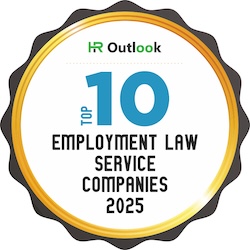Retaliation
Unlawful Retaliation in Employment
Federal and Colorado law prohibits employers from retaliating against an applicant, employee, or former employee because the individual engaged in protected activity under the law.
The law protects applicants, employees, and former employees in the private sector and federal, state, and local government from retaliation.
Murray Law welcomes the opportunity to provide experienced counsel and representation to persons subjected to workplace retaliation.
This practice represents clients asserting retaliation claims in federal and state court lawsuits, filing charges with federal, state, and local government agencies, and mediation and arbitration proceedings.
Steven Murray has successfully represented individuals asserting retaliation claims in lawsuits in multiple United States District Courts, including obtaining jury verdicts and resolutions on behalf of clients in cases before the United States District Court for the District of Colorado and mediation proceedings.
Steven Murray has obtained jury verdicts for clients against private and public sector employers in retaliation cases.
Federal and Colorado Law
Numerous federal and state civil rights and employment discrimination laws prohibit retaliation in employment. Examples of statutes providing retaliation protection include but are not limited to:
- Title VII of the Civil Rights Act of 1964, as amended.
- The Age Discrimination in Employment Act, as amended.
- Section 1981 of the Civil Rights Act of 1866, as amended.
- The Americans with Disabilities Act, as amended.
- The Colorado Anti-Discrimination Act, as amended.
- Fair Labor Standards Act, amended.
Persons Covered by Retaliation Law
The law protects employees, former employees, and applicants from retaliation.
The law prohibits employers from retaliating against a person within the “zone of interest” of the person engaging in the protected activity.
For example, an employer cannot retaliate against the employee who engaged in protected activity, i.e. filed a charge of discrimination, by discharging the person’s fiancé who works for the same employer.
Elements of Retaliation Claim
The recognized elements for a viable retaliation claim:
- Participation in Protected Activity.
- Opposition. Protected activity includes opposing discrimination or conduct made unlawful by a civil rights law, i.e., filing a discrimination complaint with the employer; or
- Participation. An individual’s involvement in a legal process concerning equal employment opportunity.
- For example, a person filing a charge of discrimination, assisting, testifying, or participating in any investigation, litigation, or proceeding under the employment law at issue.
- Materially Adverse Action by Employer.
- An employer’s action that might well have dissuaded a reasonable worker from making or supporting a charge of discrimination.
- Casual connection between the employee’s protected activity and the employer’s alleged materially adverse action.
- This element requires a relationship between the employee’s protected activity and the employer’s action alleged to be retaliatory.
Conclusion
Murray Law welcomes the opportunity to advise, counsel, and represent any individual deprived of the right to be free from unlawful retaliation in employment. Please contact Steven Murray at 720-928-3416.












